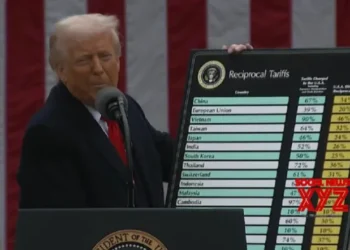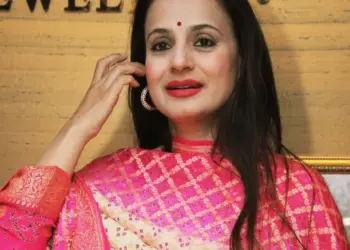Even after finally choosing its top candidate for elections in September, German Chancellor Angela Merkel’s conservative CDU/CSU bloc is struggling to put an end to the internal friction provoked by the leadership contest over the past fortnight.
The man who lost the contest, Bavarian state leader Markus Soeder, has spoken several times – and in less than optimistic terms – about the bloc’s chances in the elections, prompting calls for unity from colleagues in the centre-right, the dpa news agency reported.
On Sunday evening, Soeder described the elections as “probably the most difficult elections for the [CDU/CSU bloc] since 1998”.
“The opinion polls aren’t good, and the status quo is also relatively difficult,” he told public broadcaster ZDF.
In recent newspaper interviews, Soeder had referred to the CDU/CSU as being in a “hard emergency situation” and said his successful rival, Armin Laschet – who is now in prime position to be Germany’s next chancellor – had a different view of democracy from him.
The deputy head of Merkel’s CDU, Julia Kloeckner, on Monday batted off concerns over Soeder’s comments, saying that there was no going back on the decision to let Laschet lead the bloc into the elections.
“We now stand together. The decision has been taken, and the [bloc] is strong together,” she said.
One opinion poll over the weekend showed the CDU/CSU trailing the Greens for the first time.
The bloc had already seen its poll numbers slide in recent months.
Laschet, whose popularity lies far below Soeder’s according to polls, was asked on Monday whether he still considers his beaten rival to be a trustworthy partner. “Yes, absolutely,” he responded.
Laschet also welcomed Soeder’s plans to support the CDU’s campaign in the state elections in Saxony-Anhalt in June.
“In this campaign, in particular in the fight against the [far-right Alternative for Germany], Markus Soeder and I stand right at each other’s side,” Laschet said.
Rumblings over future leadership dog Merkel’s conservative bloc
Even after finally choosing its top candidate for elections in September, German Chancellor Angela Merkel’s conservative CDU/CSU bloc is struggling to put an end to the internal friction provoked by the leadership contest over the past fortnight.
The man who lost the contest, Bavarian state leader Markus Soeder, has spoken several times – and in less than optimistic terms – about the bloc’s chances in the elections, prompting calls for unity from colleagues in the centre-right, the dpa news agency reported.
On Sunday evening, Soeder described the elections as “probably the most difficult elections for the [CDU/CSU bloc] since 1998”.
“The opinion polls aren’t good, and the status quo is also relatively difficult,” he told public broadcaster ZDF.
In recent newspaper interviews, Soeder had referred to the CDU/CSU as being in a “hard emergency situation” and said his successful rival, Armin Laschet – who is now in prime position to be Germany’s next chancellor – had a different view of democracy from him.
The deputy head of Merkel’s CDU, Julia Kloeckner, on Monday batted off concerns over Soeder’s comments, saying that there was no going back on the decision to let Laschet lead the bloc into the elections.
“We now stand together. The decision has been taken, and the [bloc] is strong together,” she said.
One opinion poll over the weekend showed the CDU/CSU trailing the Greens for the first time.
The bloc had already seen its poll numbers slide in recent months.
Laschet, whose popularity lies far below Soeder’s according to polls, was asked on Monday whether he still considers his beaten rival to be a trustworthy partner. “Yes, absolutely,” he responded.
Laschet also welcomed Soeder’s plans to support the CDU’s campaign in the state elections in Saxony-Anhalt in June.
“In this campaign, in particular in the fight against the [far-right Alternative for Germany], Markus Soeder and I stand right at each other’s side,” Laschet said.























